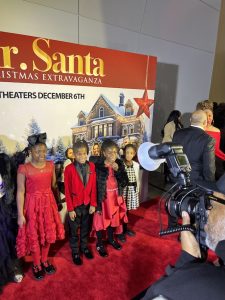Congregation B’nai Israel, a Reform Jewish congregation in Fayetteville, will hold special services Sept. 13-14 and Sept. 22-23 to mark the Jewish High Holy Days — Rosh Hashanah and Yom Kippur.
Rabbi Louis Feldstein will lead all services. Traditional music will be provided by Susan Burden, cantorial soloist and pastoral lay leader.
B’nai Israel is located at 1633 Highway 54, east of downtown Fayetteville, near the intersection of Corinth Road. Persons planning to attend services are asked to RSVP by contacting the synagogue office at 678-817-7162 or by consulting the website at www.bnai-israel.net.
In preparation for the start of the High Holy Days, the synagogue will hold what is known as a Selichot service, preparatory liturgy that leads up to the beginning of the High Holy Days. This meaningful observance, held on Saturday, Sept. 5, includes a dessert social at 7 p.m. followed by the ritual service at 8 p.m.
The services on Sunday, Sept. 13, and Monday, Sept. 14, will observe Rosh Hashanah, or the Jewish New Year, and mark the beginning of the year 5776 in the Jewish calendar. The observance officially begins at 8 p.m. Sept. 13, with what is known as the Erev Rosh Hashanah service.
Another worship service will begin at 10 a.m. Tuesday Sept. 14, to be followed by a luncheon at noon. The Rosh Hashanah observance will close after congregants gather at Starr’s Mill at 3 p.m. for the traditional Tashlich (Hebrew for “casting off”) ritual during which Jews toss bread or other food onto a body of water to symbolize the casting away of sins. Starr’s Mill is located near the intersection of State Routes 85 and 74, not far from Peachtree City.
For Yom Kippur, the Day of Atonement and the most contemplative day in the Jewish calendar, the opening service, known as Kol Nidre, will begin at 8 p.m. Sept. 22 at the synagogue. A full day of activities will begin at 10 a.m. Wednesday, Sept. 23, with another worship and prayer service.
Because Yom Kippur is traditionally a time for fasting and introspection, no luncheon will be served. Once the 10 a.m. service ends, there will be a break, followed by a healing service and individual and group learning sessions starting at 1 p.m. in the sanctuary.
At 4 p.m., the congregation will hold the closing Yizkor service, a commemoration of those who have died. The shofar, or ram’s horn, is sounded to mark the end of the Yom Kippur fast and also is sounded at designated times during the Rosh Hashanah services.
“In addition to the formal designations, this special time also has long been known as the ‘Days of Awe’,” said Sharon Hudgins, synagogue president. “That is why our congregational family has been planning for it so intensely and why we especially welcome members of the community to join in a spiritually deep High Holy Days experience. We extend an inclusive welcome to all — traditional and non-traditional families, and those comprised of different religious backgrounds. Everyone can find a spiritual home here.”












Leave a Comment
You must be logged in to post a comment.